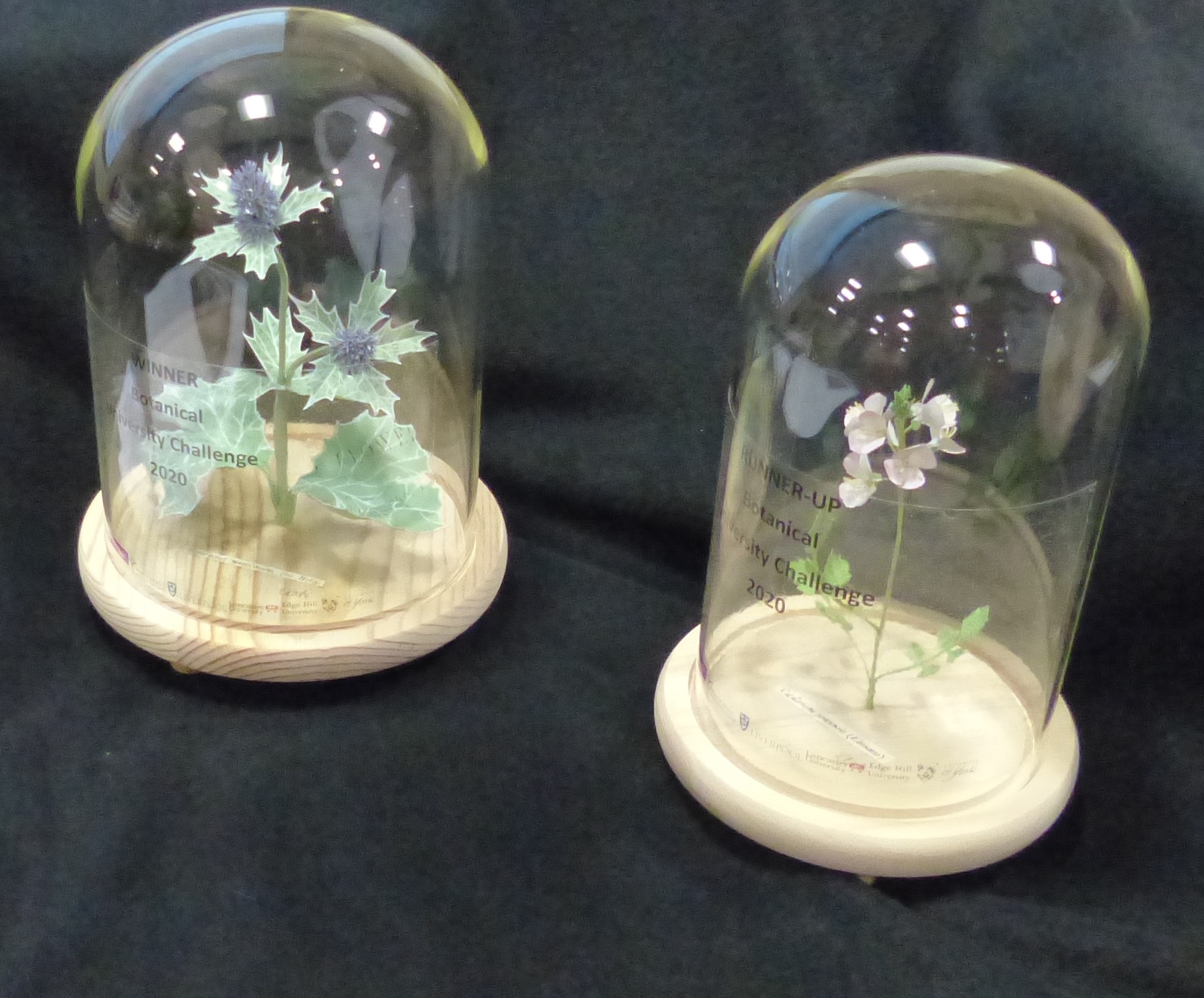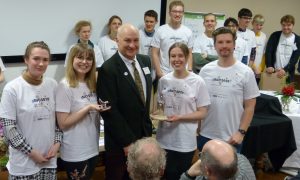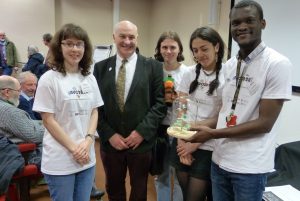On Wednesday 19th February 2020 a team of undergraduate and postgraduate botany students and supporters from University of Reading made the gruelling 10 hour roundtrip to the beautiful Ness Botanic Gardens, Liverpool University to defend their champion’s title in the third Botanical University Challenge (@BUC2020). Reading’s “Whiteknights Cedars” team went head-to-head with six other University teams: Liverpool, Edge Hill, Manchester, Manchester Metropolitan, Lancaster and York.
The contest was held in front of a packed audience, competition was intense but the Reading team emerged victorious after tough opening heats and a semi-final against Manchester Metropolitan and a final which, as it turned out, was a repeat of the 2019 challenge (held at Reading), with Reading pitted against the home team Liverpool. The event was organised By Dr Meriel Jones with questions devised by Dr John Warren and Professor Rob Marrs and expertly posed by the botanical Paxman for the day, Emeritus Professor Alan McCarthy.

The trophies for BUC2020 were specially designed paper-sculpture models of wild flowers, by Kate Kato of Kasasagidesign. The winners trophy was a beautiful depiction of Sea Holly (Eryngium maritimum) the county flower of Merseyside and the runners up trophy was equally beautiful rendition of Cuckoo Flower (Cardamine pratensis) the county flower of Cheshire. To some with local knowledge, the BUC2020 result contained a twist of irony, with the Cheshire flower being won by the team from Liverpool – the arch rivalry between the two regions being legendary in trade and industry as well on the football pitch!
But botany heals all ills and Botanical University Challenge is a fun, entertaining as well as educational botanical take on the popular BBC TV formula and was devised back in 2015 by John Warren (Aberystwyth University) and University of Reading’s own botanical champion Dr M (Jonathan Mitchley).
Dr M says: “for too long plants have been relegated to the status of green wall paper through a phenomenon which has been called plant blindness. This is manifested as we humans tend to ignore plants in their environment in preference for more “charismatic” animals, especially cuddly furry mammals with big eyes and endearing behaviours”.
Dr M continues: “But plants are hitting the headlines more and more, whether through our quest for veganism, desire for beautiful houseplants, need for floodplain vegetation management to alleviate flooding, emergency mass tree-planting to mitigate climate change, or strategies for biodiversity conservation to halt human-induced species extinctions. Plants have never been more important to our world and (if we listen) they can offer solutions to all the major environmental issues from flooding to climate change and species extinction.
Dr M concludes: Our hope is that the popularity of Botanical University Challenge will make it an annual event in the botanical calendar and in its uniquely quirky way will help raise the profile of plants locally, nationally and even globally, helping drive changes urgently needed to school and university curricula to help develop a more joined up and relevant approach to the environment, especially in how we understand the extraordinary diversity and potential of plants.”
Check our our recent symposium “The Big Botany Challenge – promoting passion for plants in our schools” here.



